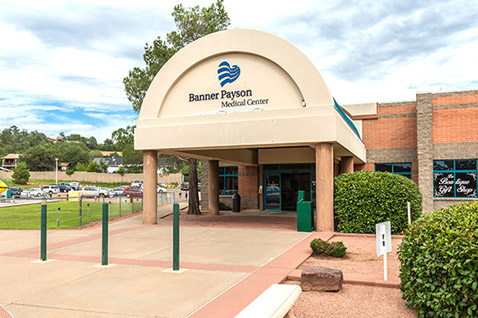 The University of Arizona Department of Emergency Medicine Residency Program at Banner – University Medical Center South is expanding by adding another rural training site at Banner Payson Medical Center in Payson, Ariz.
The University of Arizona Department of Emergency Medicine Residency Program at Banner – University Medical Center South is expanding by adding another rural training site at Banner Payson Medical Center in Payson, Ariz.
Approved in 2009, the University of Arizona Department of Emergency Medicine Residency Program at South Campus was developed to give residents experience in providing emergency care to diverse and underserved populations, as well as a focus on rural, border and global health. It is one of three distinct residency programs offered by the UA Department of Emergency Medicine; the other two are the three-year program based at Banner – University Medical Center Tucson and the five-year combined Emergency Medicine and Pediatrics program.
Residents choose the South Campus Residency Program because they want additional rural experiences in a program with a family feel, said Lisa Stoneking, MD, professor of Emergency Medicine and South Campus Residency Program director. Residents learn a wide range of emergency medical skills necessary in a rural and community practice. The rotation provides residents a better appreciation and varied perspectives of the challenges and rewards of rural and community emergency medicine, she said.
Residents now rotate in the Arizona rural community of Show Low during their second year in the program. Third-year residents choose a selective at either a Nogales, Ariz., border hospital, in an Indian Health Services site such as Tuba City, Ariz., in a Spanish Language Immersion program in Costa Rica or Guatemala, in a hospital in Uganda, or spend an additional month in Show Low or Payson.
All seven South Campus PGY1 residents will spend a month during their first year of training at Banner Payson Medical Center, a 44-bed facility. Payson is located near the center of the state with a population of less than 16,000 residents.
Arizona’s rural communities are not unlike rural areas across the nation, where there is a need for more doctors and other health professionals. Board-certified emergency medicine physicians, in particular, are in short supply.
“Research shows a rotation in a rural hospital increases the chances they will take a job there after completing their training,” said Dr. Stoneking.
“Plus it is important to have different experiences during their residency so they can better choose where they want to work.”

